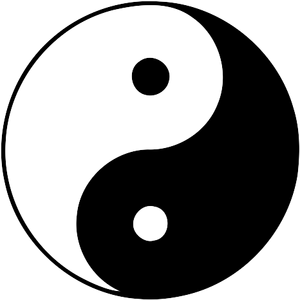An effective treatment for insomnia.
Post published by John Cline Ph.D. on Aug 17, 2008 in Sleepless in America

Sleeping medication, under the right conditions, can be helpful for insomnia but there are potential problems. When you are dependant on sleeping medication, episodes of rebound insomnia occur when you stop taking it. Side effects such as feeling "hung over" in the morning are common and alarming effects such as sleep walking and even sleep driving are well known.
While sleeping medication is big business, research has shown that the most effective treatment for insomnia is actually cognitive behavioral therapy. This approach to psychotherapy was originally pioneered by such leading researchers as Albert Ellis and Aaron Beck. Beck's outstanding research, theoretical formulation and clinical techniques were first published in a series of significant books and articles in the 1960's and 1970's.
Further research since the publication of the breakthrough "Cognitive Therapy of Depression" in 1979 has shown the utility and effectiveness of this treatment approach with numerous psychological and physical disorders including anxiety, chronic pain and insomnia.
The most important aspect of cognitive behavior therapy (CBT) for insomnia is that it actually treats the cause of the insomnia itself - and not just the symptoms as medication does. Furthermore, CBT can be combined with medication management for patients who need rapid relief or to help initially break a pattern of insomnia.
CBT works because the primary cause of insomnia is over-arousal or a "too active" awake system in the brain. By helping reduce the arousal associated with the stressors that cause and maintain insomnia, normal sleep can be restored.
CBT helps reduce worry, anxiety, and fear that one won't sleep by providing accurate information about sleep. For example, recognizing that you may be getting more sleep than you think (due to misperceiving lighter stages of sleep as wakefulness) and understanding that you may need less sleep than you thought, can reduce anxiety about not getting enough sleep and paradoxically lead to being able to relax and sleep better. For example, the minimum amount of sleep necessary to maintain alertness in most people is 5.5 hours. This is known as "core sleep" and is less than what most people need (link is external) to feel fully refreshed but may be adequate for normal functioning.
The most important aspect of cognitive behavior therapy (CBT) for insomnia is that it actually treats the cause of the insomnia itself - and not just the symptoms as medication does. Furthermore, CBT can be combined with medication management for patients who need rapid relief or to help initially break a pattern of insomnia.
CBT works because the primary cause of insomnia is over-arousal or a "too active" awake system in the brain. By helping reduce the arousal associated with the stressors that cause and maintain insomnia, normal sleep can be restored.
CBT helps reduce worry, anxiety, and fear that one won't sleep by providing accurate information about sleep. For example, recognizing that you may be getting more sleep than you think (due to misperceiving lighter stages of sleep as wakefulness) and understanding that you may need less sleep than you thought, can reduce anxiety about not getting enough sleep and paradoxically lead to being able to relax and sleep better. For example, the minimum amount of sleep necessary to maintain alertness in most people is 5.5 hours. This is known as "core sleep" and is less than what most people need (link is external) to feel fully refreshed but may be adequate for normal functioning.
Cognitive techniques help people identify, challenge and replace negative, inaccurate sleep thoughts with accurate, positive sleep thoughts. Negative sleep thoughts can occur during the night ("I won't be able to function tomorrow if I don't get to sleep soon") as well as during the day ("I got an awful night of sleep last night so I will have a terrible day at work today").
Positive sleep thoughts are used to counteract the negative thoughts with more accurate information ("I am not sleeping well tonight but I have had many other nights like this and have been able to function reasonably well at work anyway"). Cognitive techniques help reduce stress and allow better sleep.
Many behavioral techniques are used as part of this therapy. With sleep restriction and sleep scheduling the amount of time in bed is reduced to be closer to the amount of actual sleep the person is getting and regular sleep and wake times are maintained.
Many behavioral techniques are used as part of this therapy. With sleep restriction and sleep scheduling the amount of time in bed is reduced to be closer to the amount of actual sleep the person is getting and regular sleep and wake times are maintained.
If someone is usually sleeping an average of 6 hours a night but is spending 8 hours in bed, the recommendation will be to reduce time in bed to about 6.5 hours. This decreases the unpleasant sense of being awake in bed at night.
By increasing the amount of time out of bed (and therefore not in light sleep that is misperceived as wakefulness), sleep drive is increased thus helping the person more rapidly enter into a deeper sleep.
Other techniques include avoiding daytime naps (which decrease night time drive to sleep), stimulus control, sleep hygiene, and stress management. Stimulus control is based on classical conditioning effects in which long periods of being awake in bed result in association learning such that getting into bed results in the expected response of being alert and awake.
To extinguish this response the following instructions are given: after subjectively being awake for 20 to 30 minutes, get out of bed and go to a quiet, comfortable place and relax until drowsiness occurs. At that time go back to bed. If another 20 to 30 minutes go by without falling asleep, repeat the process, doing so as many times as necessary. In time the automatic alertness is extinguished and the conditioned arousal associated with the bed is eliminated.
Sleep hygiene involves the use of guidelines to create the best conditions and environment for sleep. An example would be avoiding caffeine later in the day. Stress management might include setting up a "buffer zone" of about an hour for winding down and relaxing before going to bed.
CBT has been tested in a number of well controlled research studies and has been found to be an effective treatment for insomnia. Of significance, a course of CBT may not only continue to have positive outcomes 12 months after completion of the program but also the effect can continue to improve long after treatment. This is because patients continue to practice the techniques and so experience further improvement with time.
CBT has been tested in a number of well controlled research studies and has been found to be an effective treatment for insomnia. Of significance, a course of CBT may not only continue to have positive outcomes 12 months after completion of the program but also the effect can continue to improve long after treatment. This is because patients continue to practice the techniques and so experience further improvement with time.
With consistent use of these methods it is possible to get a good, natural night of sleep. No pills, no dependency, no side effects- just wonderful, refreshing sleep.

Link: https://www.psychologytoday.com/blog/sleepless-in-america/200808/cognitive-behavioral-therapy-insomnia

Link: https://www.psychologytoday.com/blog/sleepless-in-america/200808/cognitive-behavioral-therapy-insomnia
No comments:
Post a Comment